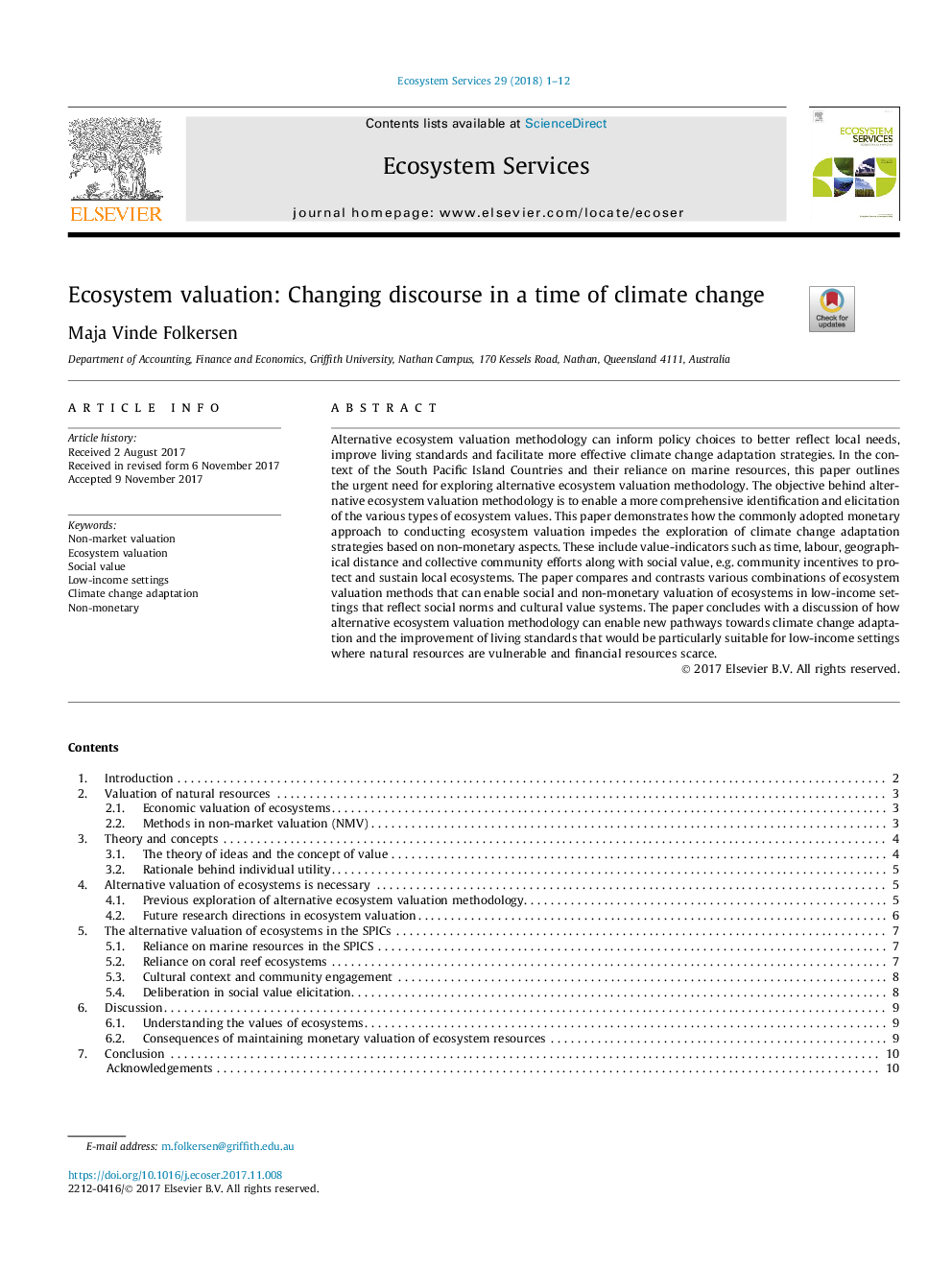| Article ID | Journal | Published Year | Pages | File Type |
|---|---|---|---|---|
| 6556458 | Ecosystem Services | 2018 | 12 Pages |
Abstract
Alternative ecosystem valuation methodology can inform policy choices to better reflect local needs, improve living standards and facilitate more effective climate change adaptation strategies. In the context of the South Pacific Island Countries and their reliance on marine resources, this paper outlines the urgent need for exploring alternative ecosystem valuation methodology. The objective behind alternative ecosystem valuation methodology is to enable a more comprehensive identification and elicitation of the various types of ecosystem values. This paper demonstrates how the commonly adopted monetary approach to conducting ecosystem valuation impedes the exploration of climate change adaptation strategies based on non-monetary aspects. These include value-indicators such as time, labour, geographical distance and collective community efforts along with social value, e.g. community incentives to protect and sustain local ecosystems. The paper compares and contrasts various combinations of ecosystem valuation methods that can enable social and non-monetary valuation of ecosystems in low-income settings that reflect social norms and cultural value systems. The paper concludes with a discussion of how alternative ecosystem valuation methodology can enable new pathways towards climate change adaptation and the improvement of living standards that would be particularly suitable for low-income settings where natural resources are vulnerable and financial resources scarce.
Keywords
Related Topics
Life Sciences
Agricultural and Biological Sciences
Agricultural and Biological Sciences (General)
Authors
Maja Vinde Folkersen,
